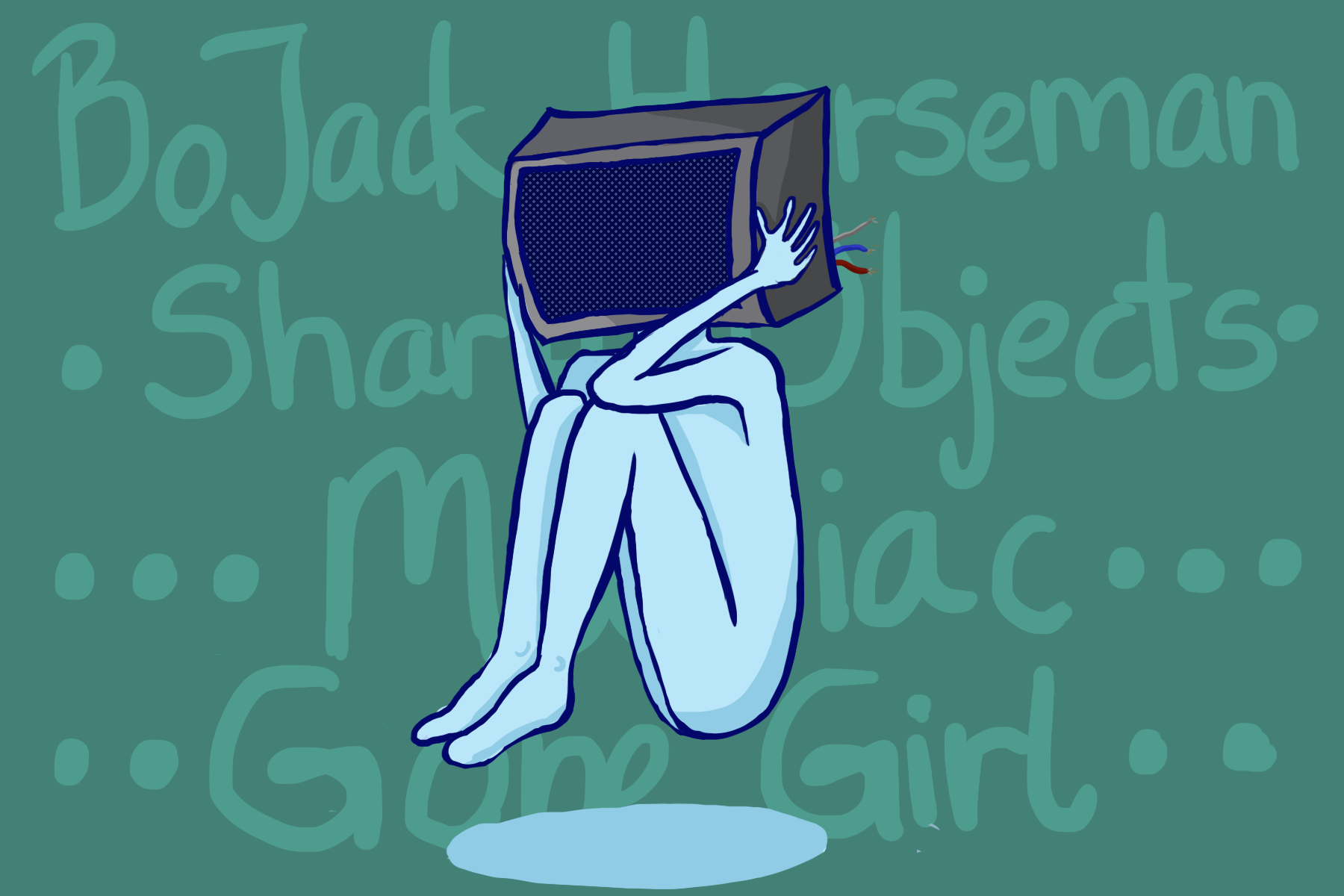[Written by Dalia Gale]
[Image by Anna Shams Ili]
Content warning: this article includes discussion of mental illness and the representation of such.
Mental illness is a thing. Some people would still like to keep it a taboo subject, while others deny its existence, but mental illness is not going anywhere, and those who suffer from it will not be silenced. Creators in particular do not like being silenced in any matter, and for that reason they often reach for art and its various form of expression to discuss mental illness and share their experiences with it.
No wonder, therefore, that many shows, books and films discuss various forms of mental illness explicitly. The era of fear against stirring the pot appears to be gone; show makers and producers understood that since some mentally ill people are coming out of that taboo-closet, such shows might be in fashion. Moreover, it is nowadays “OK” or even “desired” to create a mental illness-related, thought-provoking plotline bursting with emotion and twists.
Take the success of BoJack Horseman. In this chaotic yet so relatable tragic-comic cartoon set in a universe in which animals and people coexist, converse and even interbreed, BoJack the horse undertakes the not-so-difficult task of… ruining his own life. The plot, fuelled by BoJack’s alcoholism, childhood trauma, substance abuse and poor interpersonal skills, pretty much composes itself. From bad relationships to bad coping mechanisms, we follow BoJack through his miserable days full of longing after the good old days “back in the 90’s” when he was in a “very famous TV show”. (These quotes are from a highly addictive credits song, which I strongly recommend.)
The viewer grows increasingly frustrated with BoJack and screams at their TV/Netflix/phone in a futile attempt to stop yet another self-destructive fit of the poor horse. And it is true to say that BoJack is exaggerated, he floats outside of the frames of an “average mentally ill person”. What I mean by that is – everything is wrong with him. He has almost all the mental problems that can be imagined, and for that very reason he is so extremely relatable. That is why the frustrated viewer keeps coming back – because in between his boasts of frustration even the most sane person can find a piece of themselves in BoJack.
But what about Netflix’s Maniac? Why would viewers want to watch a convoluted, Japanese-infused (thanks to the brilliant director, Cary Fukunaga) show in which a super-intelligent computer is attempting to diagnose mentally ill people, whether it be with schizophrenia or bipolar disorder? Maybe it’s because it’s beautifully shot. (I mean, it is actually beautiful, go see for yourself.) Or maybe it is because it stars Emma Stone and Jonah Hill. (That is actually probably why.) But I kept watching it because, from the perspective of a mentally ill or even lonely person, this show is extremely reassuring. It builds up to a feeling that even if a person suffers from mental illness, even if they feel lonely, abandoned, misunderstood by the world, scared or confused, they will find some way to overcome these problems. Someone will come back for them. They won’t be left behind.
Therefore, some shows which discuss mental illness might be very relatable and that prompts their success, while others deliver reassuring feelings to the viewers, who might be struggling with similar issues. Still, what if the show (or the film for that matter) shows the worst of the worst consequences of mental illness, and not in a comic way at all? That is the case for screen and TV adaptations of Gillian Flynn’s books – Gone Girl and Sharp Objects. Both are simultaneously thrillers, which keeps the viewer at the edge of their seats and that in itself is a reason enough to watch them. But why are these dramas with mentally ill women so extremely popular? Why did I cringe and cry watching Amy Adams as an alcoholic journalist in Sharp Objects, trying to deal with her reputation-obsessed mother literally starved for attention? Why did I wince and gasp at the psychopathic actions of Rosamunde’s Pike character in Gone Girl? Likely because they are a cautionary tale of the sort that old grandmas used to tell about monsters and fairies: this is what happens when people don’t get help. This is how these characters end and let me spoil it for you (or not): they do not end well, at least not in my opinion.
There are numerous TV shows and films which discuss mental illness which have become extremely successful. Moving away from the culture of mental illness-related taboo, it has become more acceptable to portray the problems related to these conditions in mainstream media, and it turned out that there was always an audience, ready to watch these portrayals and respond. It could be attributed to the engulfing plot, or to the purely entertaining qualities of such TV, yet I have my own little theory. It is however true entirely possible that every single person on the planet sometimes experiences some symptoms of some mental illnesses. Whether it be a bout of self-hatred, some deep disappointment or lack of motivation – it doesn’t have to be a fully developed mental illness for the show discussing some of its symptoms to be familiar, relatable and helpful in making people feel less lost in this large, loud life. For that reason I think that even those who laugh at mental illness or call those who suffer from it lazy or liars, those who don’t believe it exists or those who deny others help – everyone will find shows about mental illness at least the tiniest bit relatable, because, to some extent, everyone experiences it.
[Image Description: A simplified, crouched human figure with an old-school TV instead of a head, floating in the middle of the image, against a turquoise background with the following writing: ‘BoJack Horseman .. Sharp Objects .. Maniac .. Gone Girl.’]

